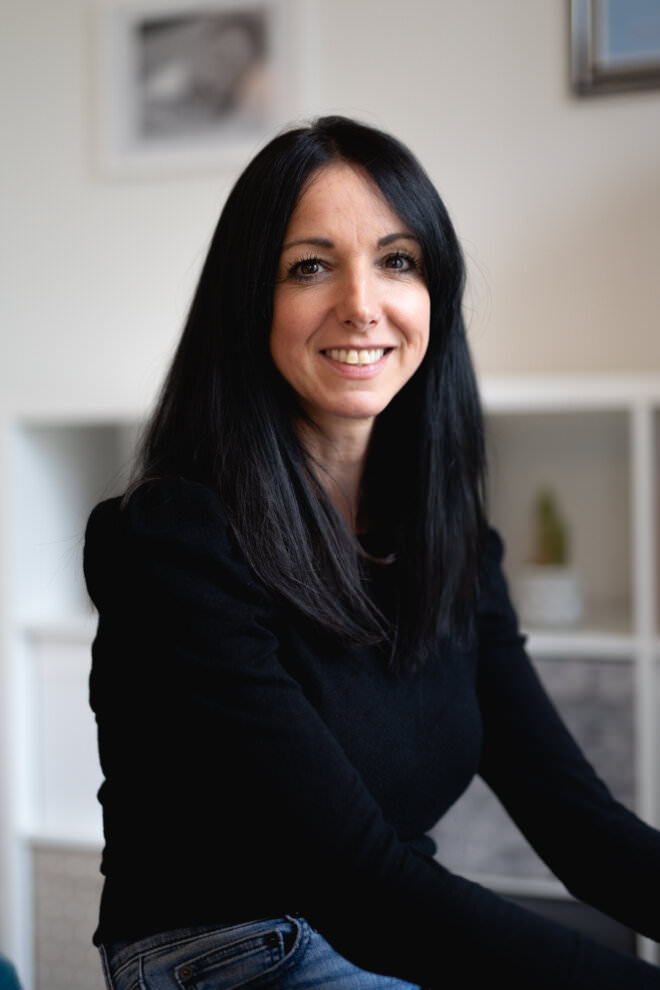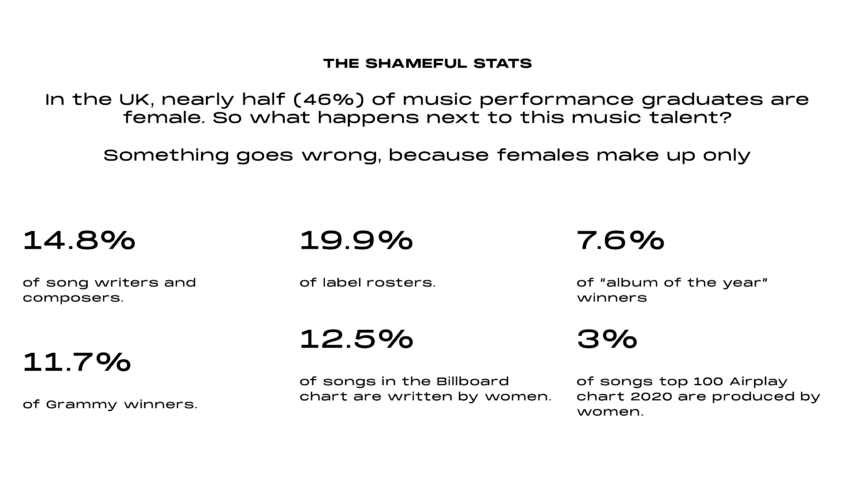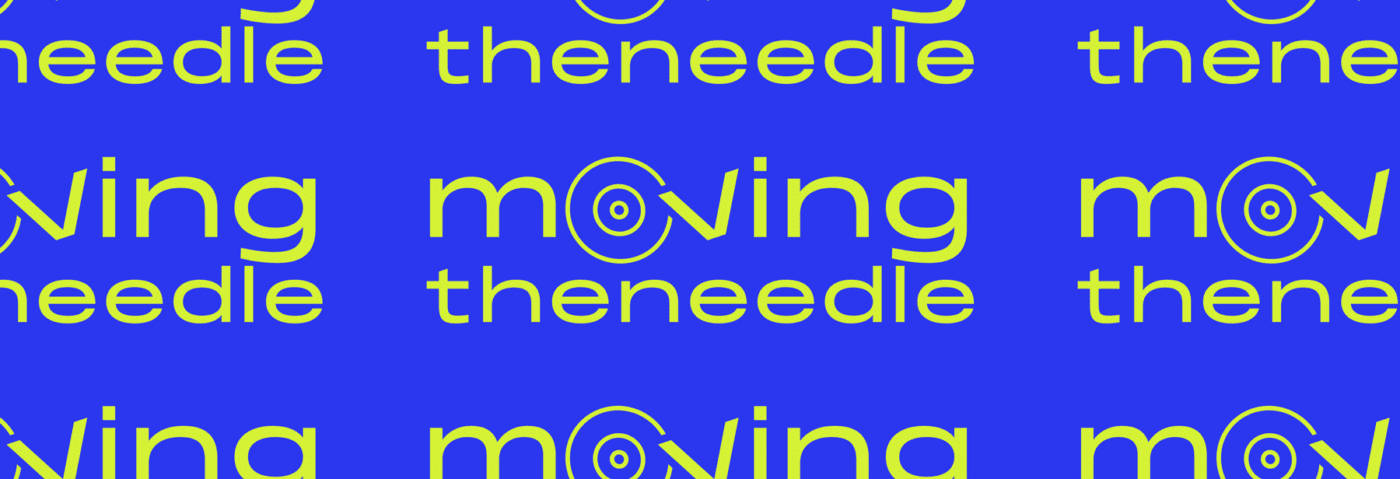Moving The Needle is a new initiative that aims to tackle gender inequality in the music industry. We asked industry player Jenni Cochrane to tell us all about it.
Jenni Cochrane has worked at the sharp end of the music industry for her entire career, after discovering the wonders of club culture via a post-school pre-university Ibiza holiday. While at university she spent every summer working in Ibiza, first for venue Cafe Mambo and then club brand Renaissance. She then worked for Ministry of Sound as head of their global live business for several years. She now runs her own company Work Inspired and is a board member of new initiative Moving The Needle. We talked over Zoom about the particular barriers women face in the music industry and what Moving The Needle plans to do about them.
Attack Magazine: What’s the Moving The Needle initiative about?
Jenni Cochrane: We want to be an educational platform for young women entering the music industry, we want to provide mentoring services for them, and provide a network of women from all different backgrounds and with all different experiences to educate them, and showcase the sheer breadth of opportunities there are in the industry.

When myself and the other board members started, there weren’t any mentor schemes or any groups like this, you just made your own luck, or you were recommended, or go through laborious interview processes. We want to try and simplify and streamline that for women and basically give them a platform to get into the industry. there’s still a misconception that women in the industry have to be a secretary or running behind the scenes at a festival looking after DJs, or an account manager or something. But why can’t you be the CEO or the MD or the A&R, these jobs are all there for women as much as they are for men.
We want to educate, working with schools and universities, doing roadshows, we want to impart our experience and knowledge to others to help them not come up against the challenges that a lot of us did.
We’re not all burning bras or raging suffragettes, we just want to see fairness and equality for women, and equal opportunities for them in the music industry
What kind of challenges are we talking about?
I think there’s a lot of ‘jobs for the boys’ type of things within the musician’s side of things. Most A&Rs out there are men and I think that there’s a level of intimidation there, where perhaps young women feel like they don’t want to go into that boardroom and present themselves and their music in front of what is all too often a table full of middle-aged dinosaurs.
And I think there’s still a lack of opportunity when it comes to things like music events and festivals, looking at the line ups they’re still 80% male, so I think its a perception thing, I think that young women don’t understand that there are the opportunities for them, sometimes they will sort of step back and not present themselves.
And I think because the music industry has been seen as an inherently male-focused industry historically I think a lot of women are scared to put themselves out there still, and that’s where we want to help break down those barriers and help support them to go for those opportunities. A lot of the time, the recruitment process isn’t maybe a traditional recruitment process, in a lot of cases it’s introductions, recommendations, my mate knows your mate etc. and there’s a lot of that still happening. But I also think that as organisations, not just majors, become more corporate and more professional things are being down in a better, more fluid way and there’s less of that stuff happening.
What is it like to experience these kinds of barriers?
It’s frustrating, when you know that you are as good if not better than some of your male peers. I’ve been in situations myself where I know for a fact that I’ve left a job and a man with less experience and less knowledge of the business has replaced me and on sizeably more money. So it’s frustrating and upsetting. We’re not all burning bras and raging suffragettes, we just want to see fairness and equality for women, and equal opportunities for them in the music industry. There are some brilliant other groups out there doing this but what we’re trying is something a little bit different with education at the forefront of everything we do.

One of the most striking statistics on your website is the nationwide gender pay disparity. Is this mirrored in the music industry?
Yes and I think that a lot of that is again to do with the fact that women historically have not fought to get those pay rises and get those big bonuses that men do. I’ve seen it in most jobs I’ve been in, where men will have the big fat salaries and they’ll get those big bonuses, whereas women kind of just take what they’re given and I think there hasn’t been a big fight against it until the #Metoo campaign kicked off and a lot of these other platforms similar to us have started to bang the drum, trying to close these gaps.
But a lot of companies who earn under a certain amount don’t have to disclose their salary figures every year, so there hasn’t been enough exposure of the data and that’s what we want to combat, we want people to understand this data, and put it out there not to shame or shock but to give a good understanding of the landscape of the industry at the moment
It’s getting better, don’t get me wrong, but there’s so much work still to do and I think the more groups like Moving The Needle that can be created, the more opportunities ultimately will come to light for women in the industry.
The other thing is how can we reduce the number of women leaving the industry at 45+. I think of course it’s obvious, it’s to do with having a family and having a job – historically there wasn’t the same financial support out there so women would have to leave their job or a lot of companies wouldn’t offer a good enough packages and it was cheaper to stay at home and put their kids through nursery or whatever.
You know, the pandemic obviously has been horrific but there have been some positives to come out of it: there’s a newfound trust that people at home, men and women, can do their jobs and they can have a family and they can still deliver. I think there’s a lot of data showing that through the pandemic women have been having to do the backbone of the childcare and the homeschooling – I’m not saying that’s me included necessarily, but I know a lot of my friends and colleagues are in that position, they’re not getting the opportunity to take the odd day off here and there, they’re having to just get their jobs done and look after their kids. So I hope that this demonstrates to employers that they’re surely capable of doing the job and being a full-time mum or dad. I think we have to take some positives out of the last year. I hope we start to see a new level of trust in women to have families at home but still carry out their jobs to that level.
And in your experience does this gender disparity carry across to DJ fees?
In my experience no – but I think that disproportionately yes – because there just aren’t enough women in the industry doing it. You’ve got amazing female artists like Maya Jane Coles or Annie Mac who get paid very well, but it’s just that we need more of them, we need to see more A level artists headlining events and festivals and by virtue of that they will get those headliner fees.
So it’s not about are they getting the same fees at that level, it’s about how can we get women climbing the ladder and get them to that headline position. This then leads to more opportunities to get their music heard, to get them in the studio, to help them climb that ladder to that headline stage. So in my experience with electronic music, I don’t think there’s a huge pay gap when it comes to DJ fees, but the industry is massive so it could be that that’s just the artists I’ve worked with over the years.
We would like to see more people from diverse backgrounds coming into the industry, staying in the industry and getting to board level
So what are the main changes would you like to see in the industry?
We would like to see more people from diverse backgrounds coming into the industry, staying in the industry and getting to board level. We want to encourage people of all backgrounds that they have every opportunity in the same way as white middle-class people do. The industry still is quite middle class, so we want to open the gates, and we want to see equality for people of colour, people from different ethnic backgrounds, women as well as men.
We want to create a support platform that’s successful for women at all levels. Ultimately we want to see the pay gap closed, we want to see fewer women leaving the industry. There’s an enormous percentage of young women that start in the industry but then they drop off. We want to see all these statistics going up, until we get to the point – not overnight – where we can get everything to a 50/50 even keel when it comes to diversity, gender gap, pay gap – that’s ultimately our goal. It’s a big ambition but that’s where we want to get to; we have to: there are not enough people out there fighting for it, so we have to.
You can find out more about the initiative on the Moving The Needle website.
